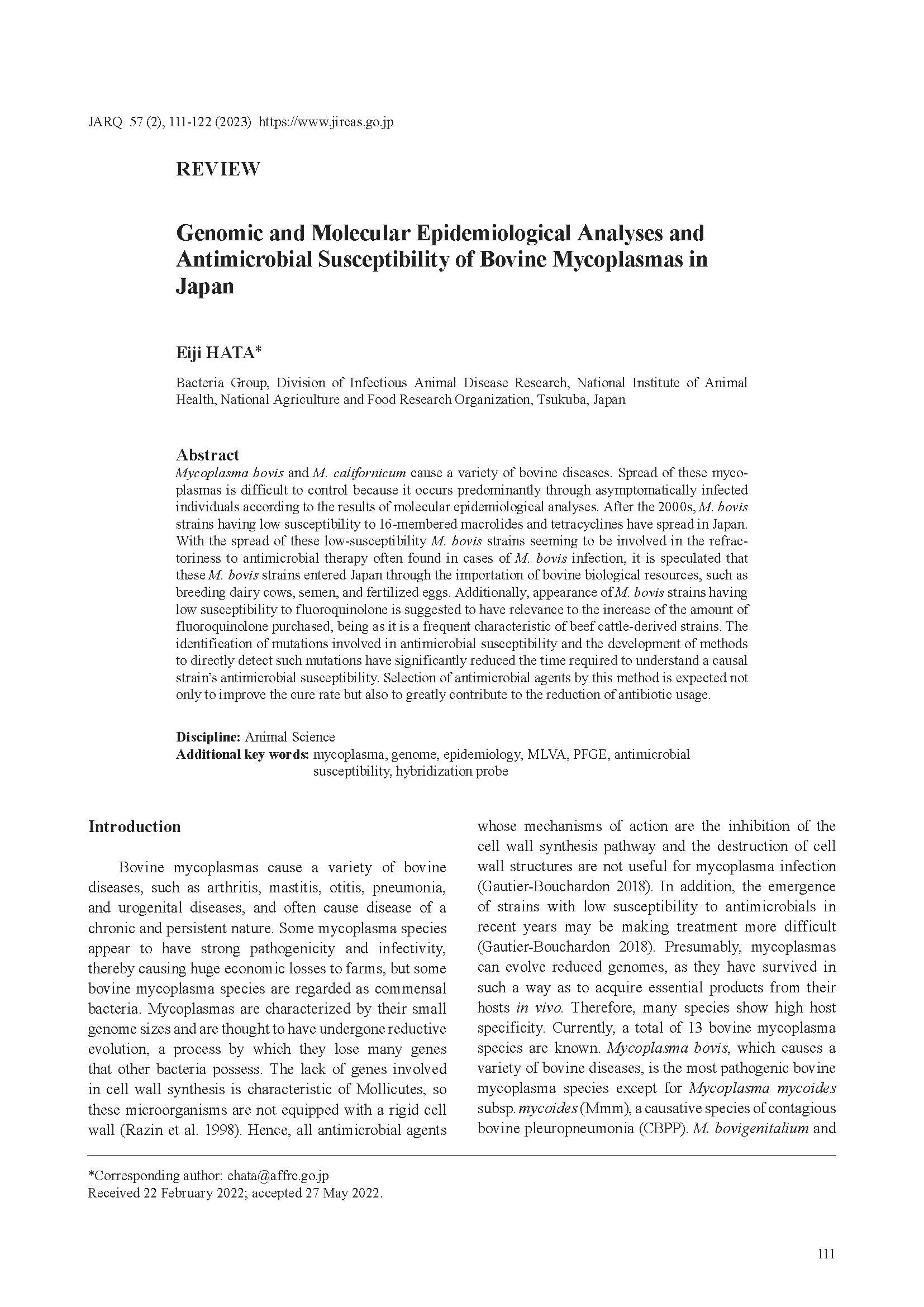Mycoplasma bovis and M. californicum cause a variety of bovine diseases. Spread of these mycoplasmas is difficult to control because it occurs predominantly through asymptomatically infected individuals according to the results of molecular epidemiological analyses. After the 2000s, M. bovis strains having low susceptibility to 16-membered macrolides and tetracyclines have spread in Japan. With the spread of these low-susceptibility M. bovis strains seeming to be involved in the refractoriness to antimicrobial therapy often found in cases of M. bovis infection, it is speculated that these M. bovis strains entered Japan through the importation of bovine biological resources, such as breeding dairy cows, semen, and fertilized eggs. Additionally, appearance of M. bovis strains having low susceptibility to fluoroquinolone is suggested to have relevance to the increase of the amount of fluoroquinolone purchased, being as it is a frequent characteristic of beef cattle-derived strains. The identification of mutations involved in antimicrobial susceptibility and the development of methods to directly detect such mutations have significantly reduced the time required to understand a causal strain’s antimicrobial susceptibility. Selection of antimicrobial agents by this method is expected not only to improve the cure rate but also to greatly contribute to the reduction of antibiotic usage.

